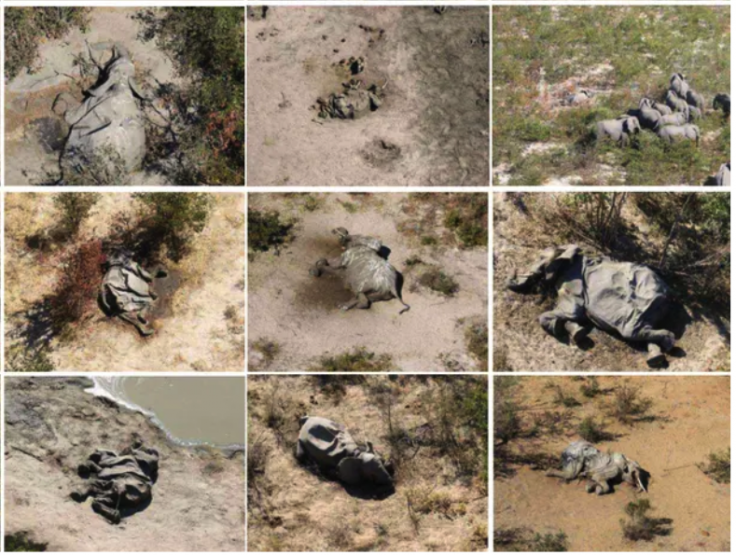With the world already struggling against the novel coronavirus, which is believed to have originated from bats, scientists suspect that an unidentified novel virus that killed hundreds of elephants in Botswana could pass on to humans as well.
Mystery shrouds the death of elephants whose carcasses were found in an area of spanning 3,000 square miles in Okavango Delta in the southern African country. Home to 18,000 elephants, Botswana made news when rotting carcasses of elephants were spotted lying in the open, over two months ago.
Novel Elephant Virus Could Infect Humans Also?
While researchers have ruled out poisoning of the elephants using anthrax or poaching as the possible cause behind the death of the elephants, environmentalists suspect an unknown pathogen, a novel elephant virus, may have caused the deaths.
Speaking to Express, Niall McCann, director of conservation for the charity National Park Rescue, said that we are currently living with a zoonotic spillover event while referring to COVID-19. "This is a mass die-off on a level that hasn't been seen in a very, very long time. Outside of drought, I don't know of a die-off that has been this significant," he said.

Suspecting the possibility of novel elephant virus invading the human system, McCann said: "The absolute worst case is that this could turn into another one. It is incredibly important to rule out the prospect of this crossing over into people. Yes, it is a conservation disaster - but it also has the potential to be a public health crisis."
Calling for a thorough sampling of the area, the wild life expert stressed that the whole ecosystem requires sampling, including vegetation, water and soil. "All the tissue of the carcass, the muscle, blood, brain, spleen," he went on to add.
Scientists Still Unable to Ascertain the Cause of Death
The samples from the dead elephants have been sent to Zimbabwe to ascertain the cause of the mass deaths among Botswana's elephants. Stating that they are awaiting results to zero in on the cause, Oduetse Kaboto, a senior official in the environment and tourism ministry, said: "We have to wait for another set of results and reconcile the two to see if they are saying the same thing before we come to a definitive conclusion. We are hoping the second set of results will come in next week and that's when we should be able to communicate to the public the cause of deaths."
It may be noted that the deaths of 169 elephants were first reported in the month of May. By mid-June, the number almost doubled with many elephants found dead around watering holes in the area. The locals of the region also reported that before dying, the elephants seemed confused as they walked around in circles hinting at a possible neurological impairment or poisoning. Further, the absence of any vultures around the carcasses also hinted at an unnatural form of death, reported Daily Mail.
Speaking to Express, Mary Rice, executive director of the Environmental Investigation Agency in London, said that there is a real concern regarding the delay in getting the samples to an accredited laboratory for testing in order to identify the problem, and then take measures to mitigate it. "The lack of urgency is of real concern and does not reflect the actions of a responsible custodian. There have been repeated offers of help from private stakeholders to facilitate urgent testing which appear to have fallen on deaf ears. And the increasing numbers are, frankly, shocking," she said.









